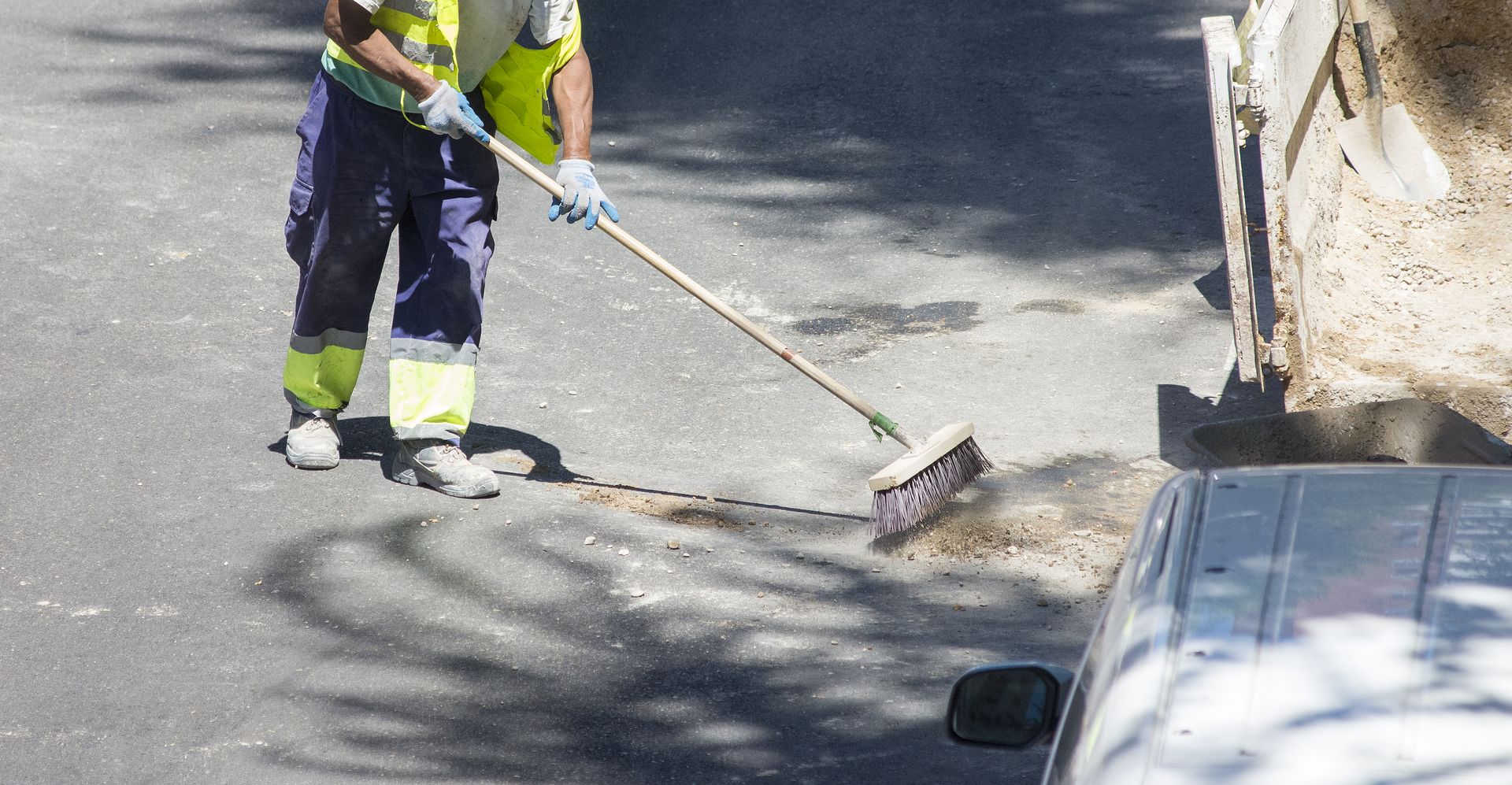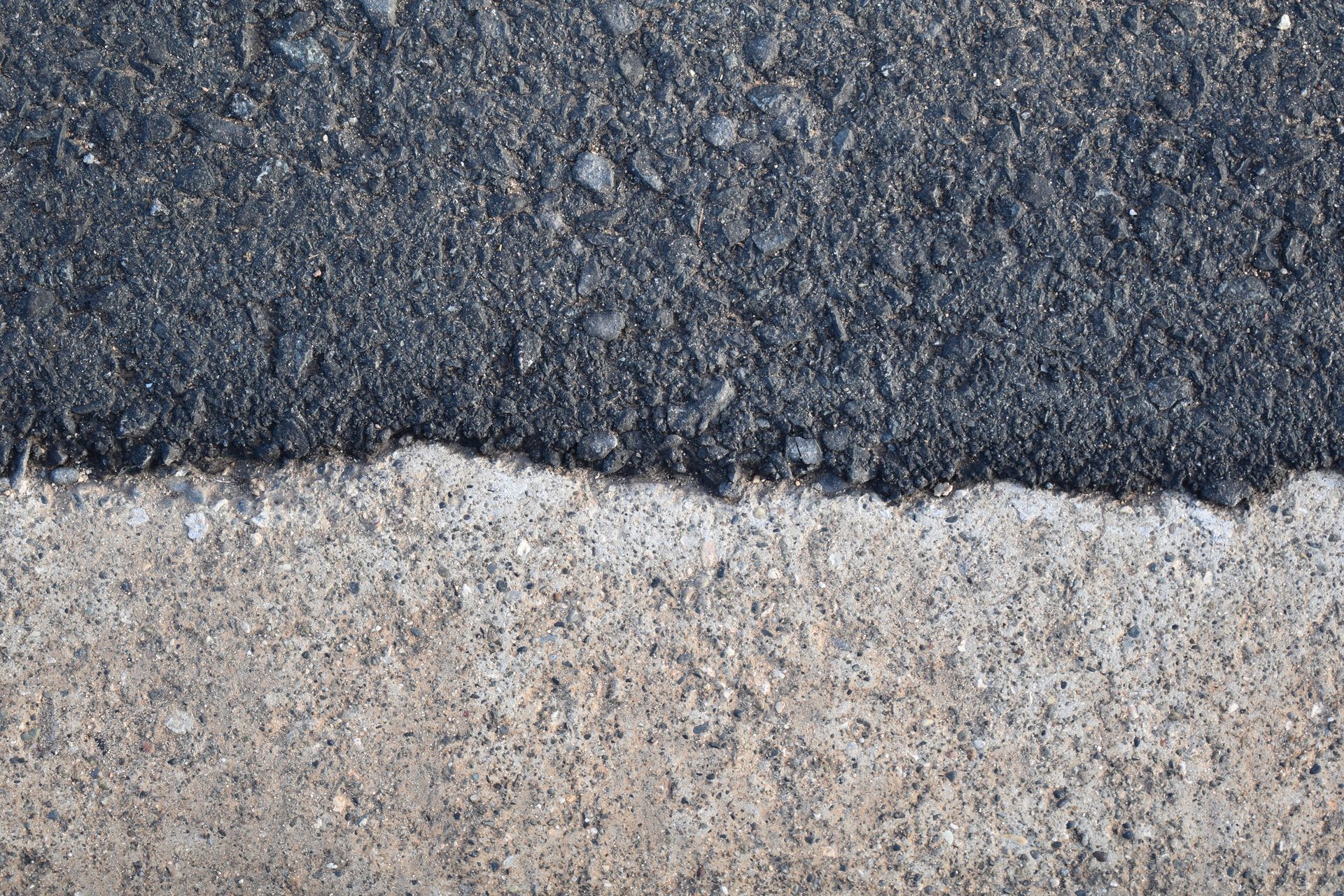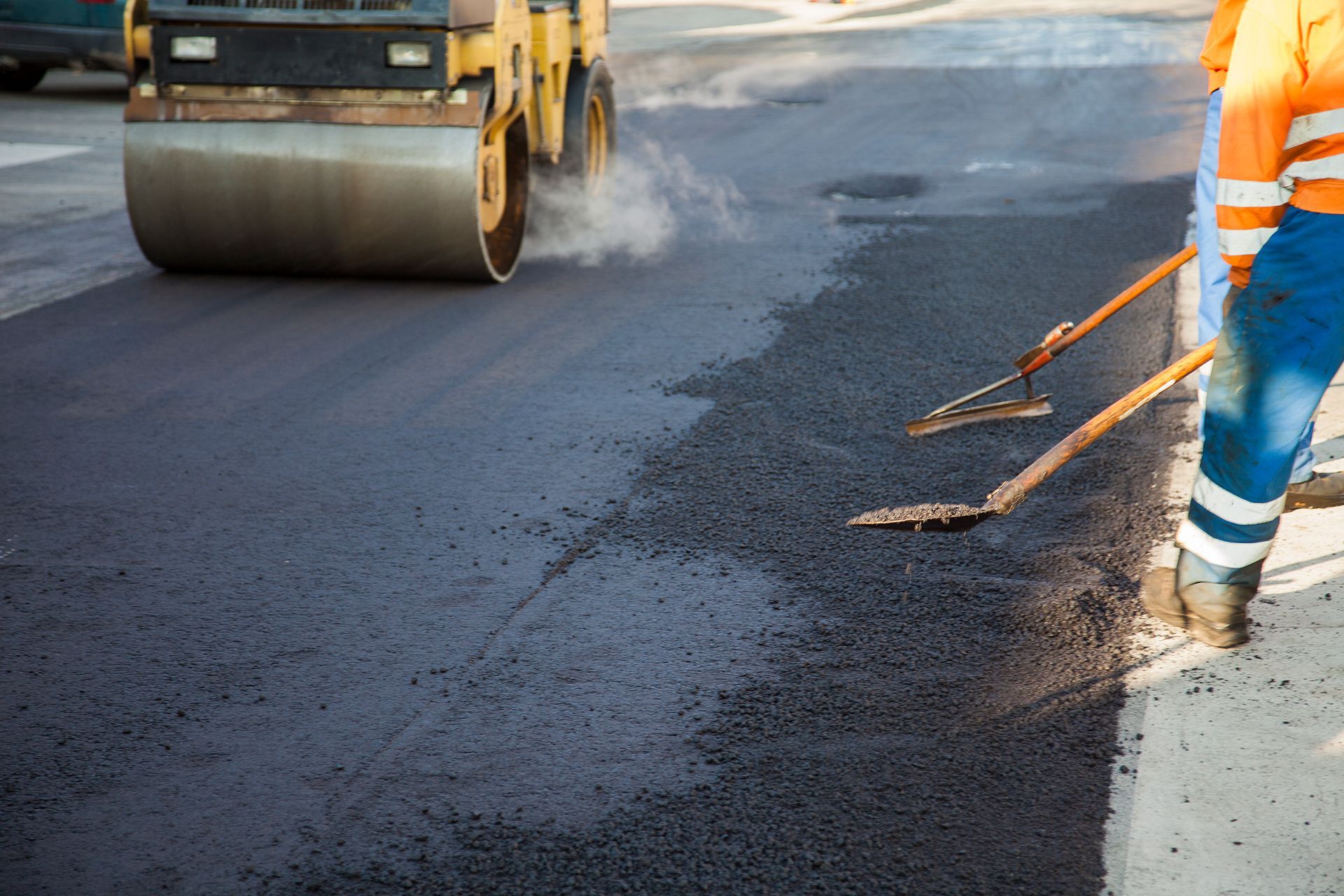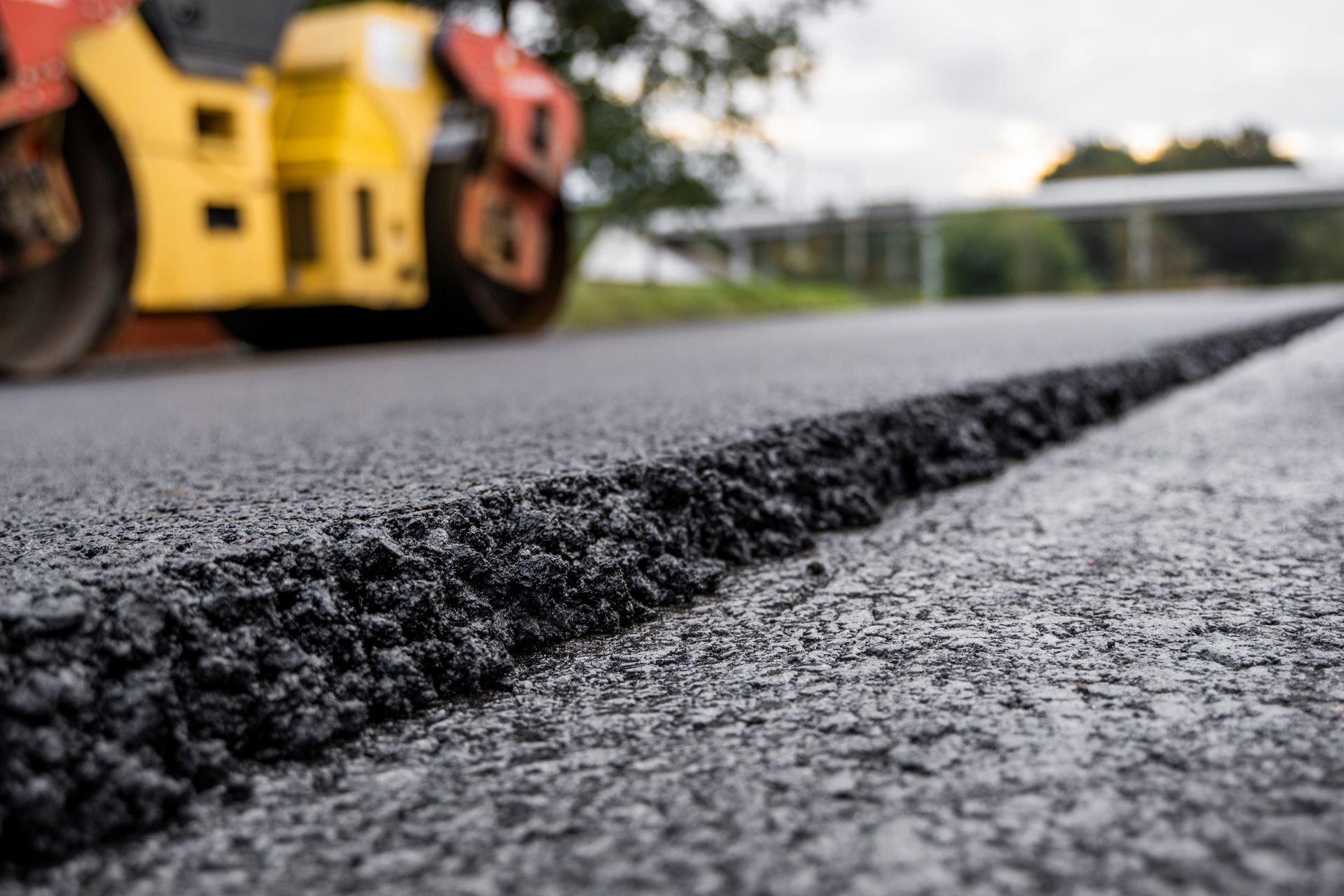Should I Repair My Asphalt Driveway Before Winter?
As autumn leaves begin to fall, many homeowners turn their attention to preparing their property for the coming winter. While tasks like cleaning gutters and winterizing sprinkler systems are common, one crucial area is often overlooked: the asphalt driveway. That small crack or minor pothole might seem
harmless now, but ignoring it before winter can lead to significant and costly damage. Addressing asphalt repairs in the fall is a proactive step that protects your investment and ensures your driveway withstands the harsh winter weather.
This post will explore why it's so important to repair your asphalt driveway before the temperature drops. We will cover the specific damages that winter can cause, how to spot problems early, and the long-term benefits of timely maintenance.
How Winter Weather Wreaks Havoc on Asphalt
Your driveway faces its toughest test during the winter months. The combination of moisture, freezing temperatures, and physical stress can turn minor issues into major headaches.
The Freeze-Thaw Cycle Explained
The primary enemy of asphalt in cold climates is the freeze-thaw cycle. Here’s how it works:
- Water Infiltration: Rain and melting snow seep into existing cracks, no matter how small. The water penetrates the asphalt surface and settles into the foundation beneath.
- Expansion: When temperatures drop below freezing, this trapped water turns to ice. As water freezes, it expands by about 9%. This expansion exerts immense pressure on the surrounding asphalt, pushing it apart and widening the crack.
- Thawing and Repetition: When the ice melts, the crack is now larger, allowing even more water to enter during the next melt. This cycle repeats itself countless times throughout the winter, with each freeze progressively worsening the damage. What started as a hairline crack can quickly become a large fissure or a pothole.
Weakening the Foundation
Water that penetrates through cracks doesn't just damage the surface; it compromises the structural integrity of your entire driveway. The gravel base and subgrade soil beneath the asphalt become saturated. This softened foundation can no longer adequately support the weight of vehicles, leading to
depressions, rutting, and widespread alligator cracking—a web of interconnected cracks that indicates foundational failure.
The Impact of Snowplows and De-icers
Clearing your driveway is a winter necessity, but it can also contribute to its decline. Snowplow blades can easily catch on the raised edges of existing cracks and potholes, chipping away at the asphalt and making the damage much worse. Shovels can also have the same effect on already weakened areas.
Furthermore, while rock salt and chemical de-icers are effective for melting ice, they can be corrosive. These chemicals can accelerate the breakdown of the asphalt binder over time, weakening the surface and making it more susceptible to damage from moisture and traffic.
Identifying Driveway Damage: What to Look For
Before winter sets in, take a few minutes to walk your driveway and inspect it for signs of trouble. It’s best to do this on a dry day when cracks are most visible.
Cracks of All Sizes
Inspect the asphalt surface for cracks. They can appear in several forms:
- Hairline Cracks: Very thin, superficial cracks. While they may seem minor, they are the first entry point for water.
- Transverse and Longitudinal Cracks: These run across the width or length of the driveway and often signal issues with the installation or underlying joints.
- Alligator Cracking: A pattern of interconnected cracks that resembles the scales on a reptile's back. This is a serious red flag indicating that the foundation is failing and requires immediate attention.
Potholes and Depressions
Potholes are bowl-shaped cavities that form when the asphalt surface has completely broken away. They are a clear sign of advanced water damage and foundational issues. Depressions, or birdbaths, are low spots in the driveway where water pools. These areas are problematic because they hold moisture,
accelerating the freeze-thaw cycle in that spot.
The Benefits of Pre-Winter Asphalt Repair
Taking action in the fall provides significant advantages that will save you time, money, and frustration.
Extend the Lifespan of Your Driveway
A well-maintained asphalt driveway can last for 20 years or more. By sealing cracks and patching potholes before winter, you prevent water from penetrating the surface and damaging the foundation. This simple preventative maintenance is one of the most effective ways to maximize the lifespan of your driveway and protect your property's value.
Save Money on Future Repairs
The logic is simple: it is far less expensive to fill a small crack than it is to repair a large pothole or replace a section of the driveway. Letting winter damage run its course will only lead to more extensive and costly repairs in the spring. A small investment in fall maintenance can help you avoid a major capital
expense down the road.
Enhance Safety and Curb Appeal
A smooth, well-maintained driveway is safer for both pedestrians and vehicles. Potholes and large cracks are tripping hazards and can cause damage to your car's tires and suspension. Repairing these issues not only improves safety but also boosts your home's curb appeal, creating a clean and welcoming
entrance.
Your Partner in Driveway Maintenance
Repairing an asphalt driveway correctly requires the right materials, tools, and expertise. While small hairline cracks can sometimes be a DIY project, significant cracks and potholes are best left to professionals. Proper preparation and the use of commercial-grade sealants are essential for a durable,
long-lasting repair.
For homeowners looking for a reliable and experienced solution, The Asphalt Guy is a trusted expert in asphalt repair and maintenance. Their team understands the unique challenges that winter weather presents and can provide a professional assessment of your driveway's condition. By choosing a specialist like The Asphalt Guy, you can be confident that the repairs will be done right, ensuring your driveway is fully prepared to handle whatever winter throws at it.
Don't wait for the first freeze. Protect your investment and prevent costly damage by inspecting your driveway today. If you see signs of wear and tear, contact The Asphalt Guy for a professional consultation and ensure your driveway remains in top condition for years to come.










